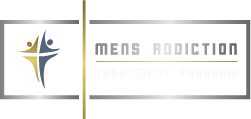Mental health issues are at an all-time high in the US. Currently, one in five adults has reported feeling depressed, anxious, or struggling with other mental health issues like addiction within the last year. And 2022 is on track for a continuing increase in this trend. A dialectical behavior therapy program can help those struggling with severe depression or other mental health issues.
At Arkview Recovery Center, we use dialectical behavior therapy (DBT) to help patients with severe mental health issues and may be at risk of suicide or serious self-harm. Our team will determine if a dialectical behavior therapy program is right for your individual needs during your initial evaluation. If you or a loved one is struggling with severe mental health issues, call 717.744.0756 today to speak with our compassionate staff about our dialectical behavior therapy program.
What is Dialectical Behavior Therapy?
DBT is a form of cognitive-behavioral therapy initially created to help patients with borderline personality disorders (BPD). Today, dialectical behavior therapy is the preferred method for treating BPD and many mental health issues like depression and PTSD.
DBT is a strategy that teaches patients about acceptance and change. In fact, the word dialectical means integration of opposites. Therapists accept patients’ experiences and reassure them so they can begin focusing on making real changes in their lives.
There are four components of a dialectical behavior therapy program:
Skilled-training group
Patients begin working on changing their behaviors in a classroom-like setting where a therapist will assign daily homework so they can practice their new skills at home.
Individual treatment
Individual therapy focuses on the patient’s unique situation and events that are causing the negative behavior.
DBT phone coaching
Phone coaching can help when patients face a troubling issue in their daily lives and need to speak with someone to help them relax and avoid any risky or self-destructive behavior. Therapists will talk directly with patients to help them, as necessary.
Consultation team
A consultation team is available for therapists and leaders to meet with others and discuss the ongoing care of patients. Moreover, therapists use consultation teams as a means to stay motivated while treating complex mental health issues.
Dialectical Behavior Therapy Modules
Dialectical behavior therapy programs include four behavioral modules:
- Mindfulness – Teaching how to be fully aware and live in the moment.
- Distress tolerance – Learn how to tolerate emotional pain, not change it.
- Interpersonal effectiveness – Learn to say no and ask for what you need with healthy communication skills.
- Emotional regulation – Learn how to ignore the emotions that affect you negatively and how you can change your negative emotions.
Is DBT Right for You?
Dialectical behavior therapy works best for patients with multiple mental health issues. These issues include addiction caused by past trauma, emotional or physical abuse, domestic violence, wartime, or the COVID-19 pandemic. It is an extensive program that focuses on four primary areas that focus on specific behaviors:
- Life-threatening
- Therapy-interfering
- Quality of life
- Skills acquisition
Each section is performed in a specific order and builds on the previous task to give patients the best chances of succeeding and making positive changes in their lives.
Arkview Recovery Center’s Dialectical Behavior Therapy Program
At Arkview Recovery, our center for dialectical behavior therapy can help patients with extreme mental health issues and at risk of suicide. DBT allows for open and honest communication in group and individual therapy sessions. In these sessions, therapists work with patients to help them accept their current situation. In addition, they’ll be taught how to make positive changes.
If you or someone you love is struggling with severe mental health issues or have attempted suicide in the past, call 717.744.0756 today to speak with our caring staff about our dialectical behavior therapy program.
